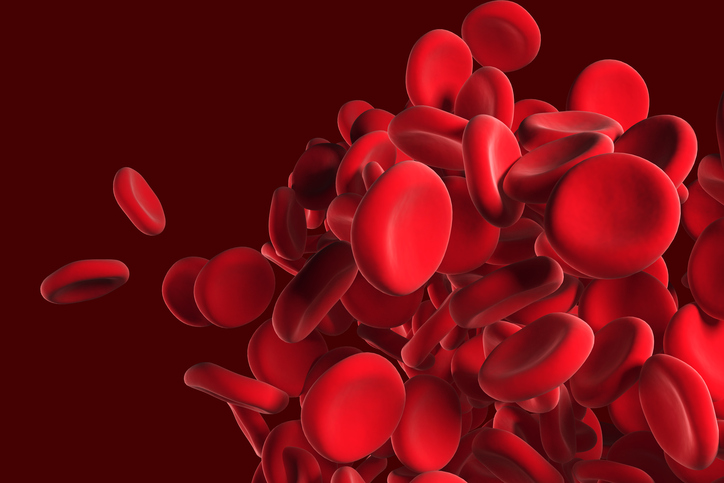
A hemophilia B gene therapy that uniQure is testing in a pivotal clinical trial is on track for a filing with the FDA early next year, an updated timeline that follows discussions with the agency about the data needed to support a submission seeking regulatory approval.
Netherlands-based uniQure said Tuesday that the FDA confirmed the company would need at least 52 weeks of clinical data starting from when the blood clotting protein levels stemming from the gene therapy are stable, not from when the therapy is first administered. All patients in the study reached a steady state after 26 weeks, so patients in the study will be assessed for their annualized bleeding rates at week 78 instead of week 52.
UniQure said that all patients are expected to complete their week 78 follow-up visits by the end of the third quarter of this year. Based on that timeline, the company and its partner, CSL Behring, expect that they will be able to submit a biologics license application to the FDA in the first quarter of 2022.
Hemophilia B is caused by a mutation to gene that codes for factor IX (FIX), a clotting protein. The uniQure gene therapy, etranacogene dezaparvovec, delivers a functioning version of the FIX gene to patient’s cells. The company is developing the gene therapy for patients with severe and moderately severe hemophilia B.
The uniQure gene therapy is being tested in an open-label Phase 3 study that dosed 54 patients, each of them given a single infusion. The main goal was to measure FIX levels at 26 weeks. The secondary endpoints included assessing annualized bleeding rates and the use of FIX replacement therapy, both measures coming at 52 weeks.

A Deep-dive Into Specialty Pharma
A specialty drug is a class of prescription medications used to treat complex, chronic or rare medical conditions. Although this classification was originally intended to define the treatment of rare, also termed “orphan” diseases, affecting fewer than 200,000 people in the US, more recently, specialty drugs have emerged as the cornerstone of treatment for chronic and complex diseases such as cancer, autoimmune conditions, diabetes, hepatitis C, and HIV/AIDS.
Late last year, uniQure reported 26 week data showing that after dosing, FIX activity in patients increased to an average of 39%, meeting the main goal of the study. In 52-week data reported on Tuesday, uniQure said that FIX activity continued and even increased, reaching 41.5% of normal. So far, there is no correlation between neutralizing antibodies to the virus used to deliver the gene therapy and FIX activity in patients. Over the course of the 52 weeks, the annualized rate of bleeding that requires treatment was reduced from 3.39 at baseline to 0.68 bleeding episodes per year.
According to the company, usage of FIX replacement therapy in all patients declined during the 52-week period, with 52 of 54 patients (96%) successfully discontinuing their prophylactic infusions. UniQure had previously announced that two patients were non-responders to the gene therapy; one of them received only a partial dose.
About a year ago, uniQure licensed its hemophilia gene therapy to CSL Behring for $450 million up front. Under the deal terms, uniQure is responsible for completing the Phase 3 study and submitting the application seeking FDA approval. CSL Behring agreed to reimburse uniQure for those expenses. If the FDA approves the gene therapy, CSL will commercialize it; uniQure could earn up to $1.6 billion in milestone payments, plus royalties from sales.
With CSL Behring set to handle commercialization of the hemophilia gene therapy, uniQure will be able to turn its focus to a pipeline that includes gene therapies for liver and central nervous system disorders. The next most advanced program, the Huntington’s disease gene therapy AMT-130, is in Phase 1/2 testing.
In an investor presentation released as part of its virtual Research & Development Day, uniQure set a five year goal to advance three to four programs to Phase 3 development; five to eight programs to Phase 1/2 testing; and have seven to 12 preclinical programs. A preclinical gene therapy from Corlieve Therapeutics will be somewhere in that mix. On Tuesday, uniQure announced that it had acquired the Paris-based gene therapy developer for €46.3 million (about $55.3 million) in upfront cash.
Corlieve’s lead program, a preclinical gene therapy for temporal lobe epilepsy, will be known as AMT-260. Depending on the progress of the therapy, Corlieve shareholders could receive an additional €43.7 million in development milestones through Phase 1/2 development, and €160 million tied to Phase 3 development and approvals in the U.S. and Europe.
Photo: virusowy, Getty Images












